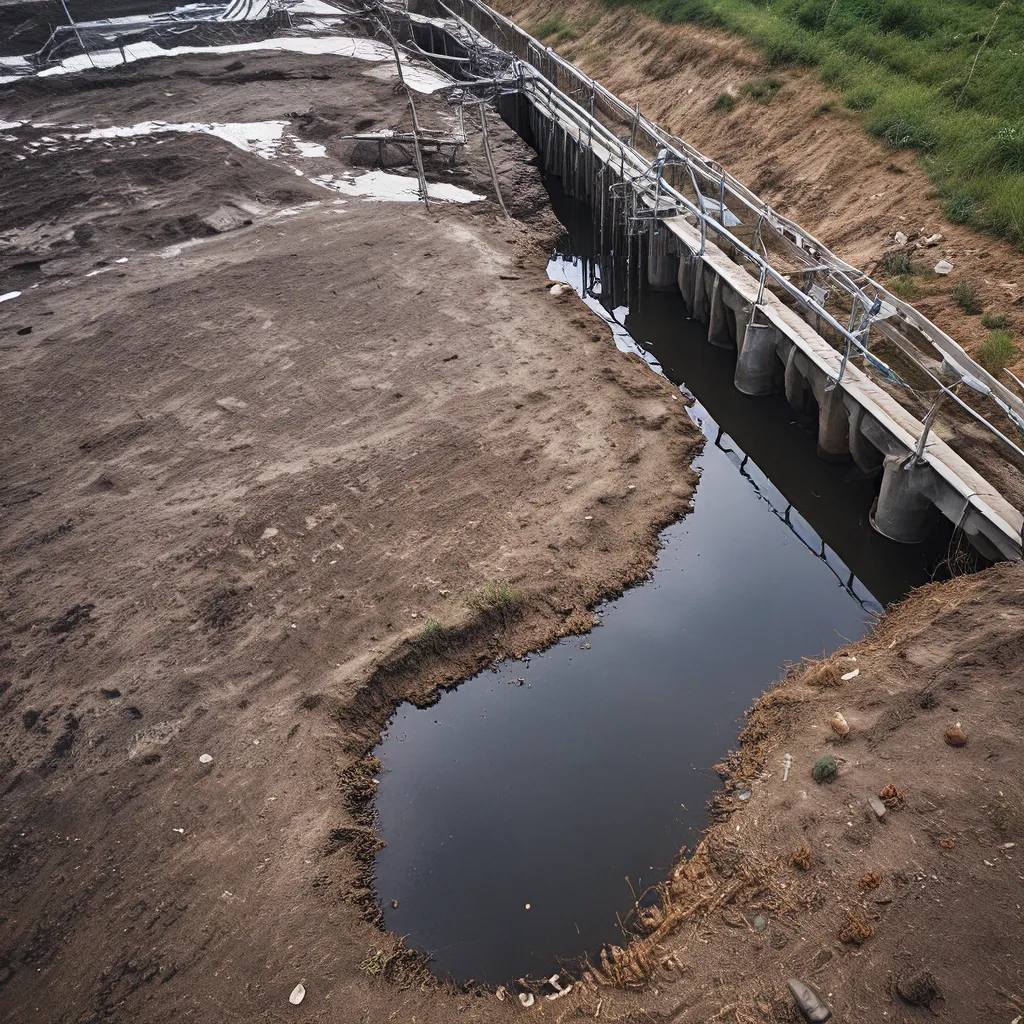
As a proud member of the wastewater treatment community, I’ve always been fascinated by the untapped potential of our sewer systems. Sure, they may not be the most glamorous part of our infrastructure, but they hold a wealth of information that can have a profound impact on public health. And that’s exactly what wastewater-based epidemiology is all about.
Now, I know what you might be thinking – “Wastewater? Epidemiology? That sounds like a bunch of technical jargon.” But bear with me, because this is some truly exciting stuff. Wastewater-based epidemiology is all about using the data we can glean from our sewage to get a real-time, comprehensive picture of what’s going on in our communities. It’s like having a secret window into the health of an entire population, and it’s a game-changer for public health monitoring.
The Power of Wastewater Surveillance
Think about it – every time we flush the toilet, we’re flushing away valuable information about our health. Our wastewater contains traces of everything from viruses and bacteria to prescription drugs and illicit substances. And by analyzing this data, we can detect the presence and prevalence of all sorts of health issues, from COVID-19 outbreaks to the spread of antibiotic-resistant pathogens.
As the U.S. Department of Health and Human Services recently recognized, wastewater-based disease surveillance can be a “crucial tool to prevent future pandemics.” In fact, they’ve even selected Biobot Analytics, a pioneering company in this field, to establish a national wastewater monitoring program that will cover 100 million people across the United States.
This is a game-changer, my friends. Instead of waiting for clinical testing to pick up on emerging health threats, we can now get ahead of the curve by monitoring our wastewater. We can detect the presence of COVID-19 variants as they evolve, measure the effectiveness of vaccination programs, and even proactively identify novel viral pathogens before they have a chance to spread.
The Promise of Proactive Public Health
But it’s not just about disease surveillance – wastewater-based epidemiology has the potential to revolutionize the way we approach public health as a whole. Imagine a world where we can use this data to make more informed, data-driven decisions about resource allocation, targeted interventions, and preventative measures.
Instead of reacting to health crises after the fact, we can get ahead of the curve and take a more proactive approach. We can use wastewater data to identify high-risk areas, track the spread of diseases, and even monitor the impact of public health initiatives over time.
And the best part? This technology is becoming more and more accessible to communities of all sizes. Wastewater treatment services like Alpha Wastewater are making it easier than ever for local governments and public health authorities to tap into the power of wastewater epidemiology.
Embracing the Future of Public Health Surveillance
Of course, this is still a relatively new field, and there’s a lot we’re still learning. Some experts believe that wastewater-based epidemiology may have its limitations, and there’s ongoing debate about the best ways to interpret and act on the data.
But the potential is undeniable. As Verily’s Sightline on Public Health report suggests, wastewater-based surveillance can provide a more complete and inclusive picture of public health, one that goes beyond traditional clinical data. And with continued research and innovation, I believe we’ll only see this technology become more accurate, reliable, and impactful.
So, the next time you flush, remember that you’re not just getting rid of waste – you’re contributing to a revolution in public health monitoring. It’s an exciting time to be in the wastewater treatment industry, and I for one can’t wait to see what the future holds.